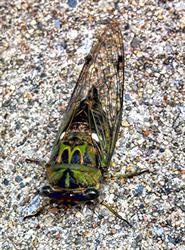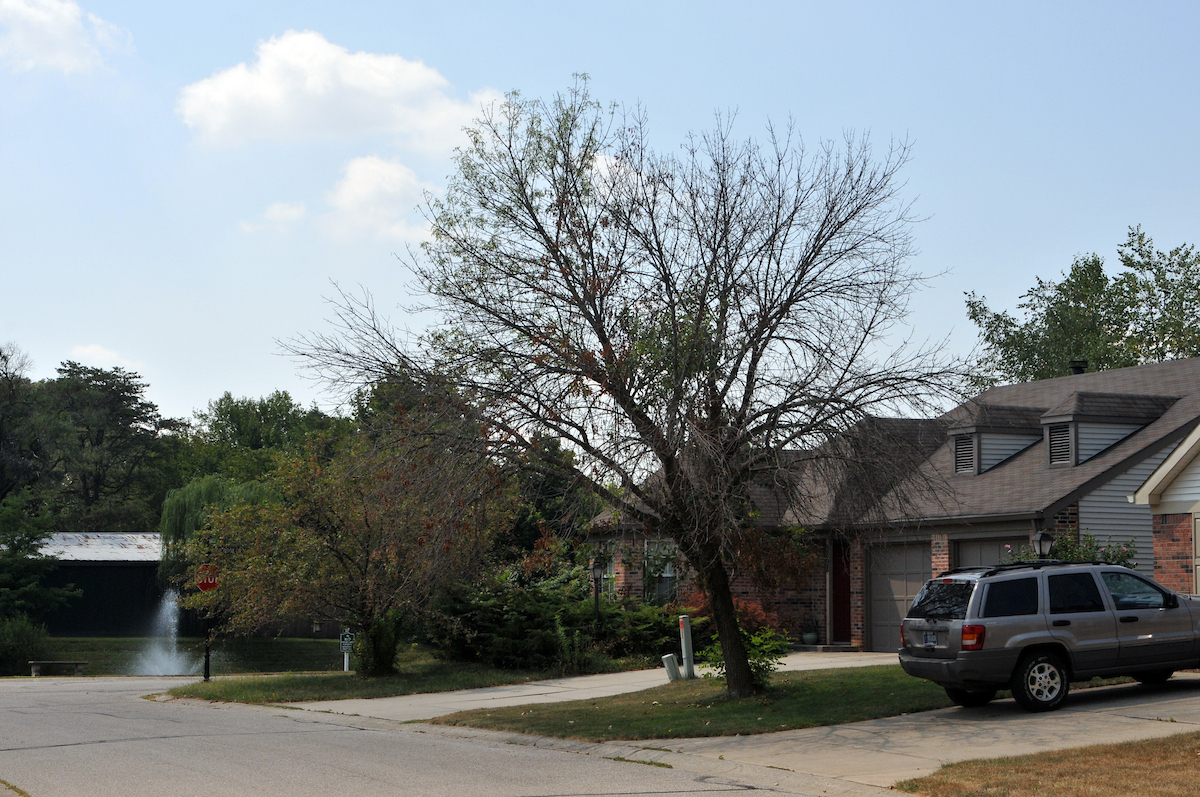More Cicadas?

I didn’t notice any 17-year cicadas around our Columbia City office earlier this year, but depending on where you live, you may have been amazed at the periodical cicada numbers. While that event is over, with the newly hatched larvae burrowing into the soil to feed on root sap for 17 more years, we’re about ready to hear the song of the annual cicada.
Unlike its periodical cousin, the annual cicada emerges every year, as its name implies. Campers and outdoor lovers will recognize the familiar song of the annual cicada in late summer. Their calls are as loud as 100 decibels. According to the U.S. Centers for Disease Control and Prevention (CDC), this noise level is roughly equivalent to an approaching subway train, a car horn at 16 feet, or crowd noise at sporting events, and hearing loss is possible after 15 minutes of continuous exposure.
Annual cicadas have black eyes rather than the red ones we find on periodical cicadas. Annual cicadas can be more than 2 inches long with very unique green or brown bodies and large eyes. This is in contrast to the orange and black coloring on periodic cicadas. Characteristics they share in common include that they have prominent wide-set eyes, short antennae, and clear wings held roof-like over the abdomen.
Some call these insects locusts, but the correct term is cicadas. A true locust is a cousin of grasshoppers, which eat grasses and crops rather than sucking sap from tree roots.
Annual cicadas are primarily nuisance pests, best known for the very loud, shrill, mating and congregation calls that they make as adults.
Former Purdue Professor of Entomology, Tom Turpin, wrote that these insects spend 2-4 years in the ground feeding on sap from tree roots, but due to staggering emergence schedules, some of them come out in late summer every year. So, their life cycle is not truly annual.
Annual cicadas are sometimes called “dog day” cicadas. “That name is based on the appearance of the cicadas about the time that Sirius - the dog star - is visible at sunrise during late July and early August,” wrote Turpin.
“The passed-down warning is that after the first call of the dog-day cicadas, there will be six weeks till frost,” said Turpin. “So, enjoy the weather while you can!” When annual cicadas are out, and if they are to be believed, cold weather is on the way.
Mark this passed-down warning up to a good legend, but not necessarily something that is accurate or predictive! “I have no idea about how accurate such predictions might be,” said Turpin.
Lastly, the emergence of annual cicadas also provides prey for cicada killers, a large native species of wasp that serves an important function in Indiana’s ecosystem. They’re up to 2 inches long and have black and yellow striped bodies with transparent yellow wings. I think they look like a fat, overgrown yellow jacket. They are sometimes confused with yellow jackets or hornets. Cicada killers are solitary insects that have burrows into the soil. They sting and drag cicadas into these burrows and lay their eggs in them to nourish their future young upon hatching.
Cicada killers rarely sting, but they may sting if a female is mishandled. Males may dive-bomb your head if you go near the nest, but they can’t sting.






